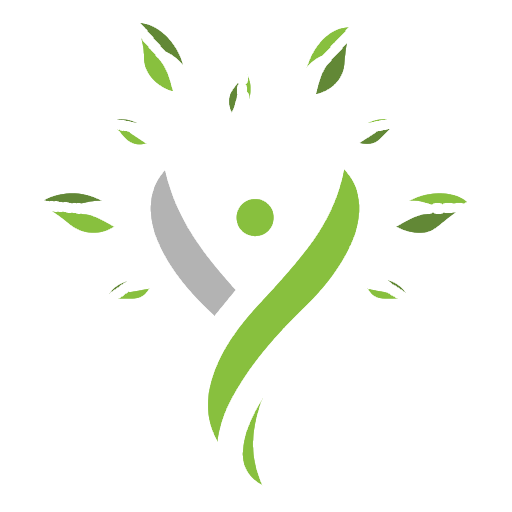
In recent years, more Australians have been turning to ayahuasca as a powerful tool for healing, spiritual awakening, and personal transformation. But with the increasing demand for this sacred plant medicine, it’s crucial to know how to find safe and ethical ayahuasca retreats in NSW (New South Wales). Whether you’re seeking ayahuasca for emotional healing, trauma release, addiction recovery, or spiritual growth, choosing the right retreat is one of the most important decisions you’ll make on your journey.
In this detailed guide, we’ll explore what makes an ayahuasca retreat safe, what to look out for when searching in NSW, and how to ensure you’re choosing a legitimate, responsible, and supportive environment.
🌿 Why Safety is Crucial in Ayahuasca Ceremonies
Ayahuasca is not a recreational substance. It’s a powerful plant medicine traditionally used in Amazonian shamanic practices for deep inner healing. However, without proper set, setting, and guidance, it can become overwhelming, traumatic, or even dangerous.
A safe retreat ensures:
- Qualified facilitators with experience in holding space
- Proper medical screening
- A supportive, trauma-informed environment
- Post-ceremony integration
- Legal awareness and confidentiality
In NSW, ayahuasca retreats exist in a legal grey area. This makes choosing an ethical and well-managed retreat even more important to avoid physical, psychological, and legal risks.
🔍 Step-by-Step Guide: How to Find Safe Ayahuasca Retreats in NSW
1. Research the Facilitators’ Backgrounds
Before committing to any retreat, look into who is running it. A safe ayahuasca retreat should have facilitators who are:
- Experienced with the medicine (ideally with training in Peru, Brazil, or Colombia)
- Trauma-informed and able to support participants through emotional release
- Supported by a team, including sitters, helpers, or medical personnel
- Open about their lineage or training background
Avoid retreats run by individuals with vague or unverifiable claims. Look for transparent bios, testimonials, and clear safety protocols.
2. Ask About Medical and Psychological Screening
A reputable ayahuasca retreat will conduct thorough health screening before accepting any participant. This includes:
- A medical history questionnaire
- Inquiries about psychiatric medications (SSRIs, MAOIs can interact dangerously)
- Information about past mental health issues like bipolar, schizophrenia, or suicidal ideation
If a retreat accepts anyone without asking for health information, it’s a red flag. Responsible retreats prioritize participant safety over profit.
“ayahuasca retreat mental health screening NSW”
3. Legal Considerations in Australia
Ayahuasca contains DMT, which is a controlled substance in Australia under the Therapeutic Goods Act. While some retreats operate discreetly or under spiritual frameworks, it’s essential to understand the legal risks involved.
What to look for:
- Discretion and confidentiality in how the retreat communicates
- Clear disclaimers or agreements
- A code of conduct for participants
Ask the retreat:
- Are there any protocols if someone needs medical help?
Even if you’re willing to participate knowing the legal ambiguity, being informed empowers you to make safer choices.
4. Check Testimonials and Word-of-Mouth Referrals
Honest testimonials from past participants are invaluable. Look for:
- Detailed stories that mention safety, support, and transformation
- Repeat participants — a good sign of trust
Ask friends, therapists, or spiritual mentors for recommendations. Word-of-mouth remains one of the most trusted ways to find safe ayahuasca retreats in NSW.
5. Evaluate the Ceremony Environment
The energy and structure of the retreat setting are critical. A safe retreat will:
- Be held in a private, secluded, nature-based location
- Limit group sizes (10–20 is ideal)
- Have preparation sessions before the ceremony
- Offer integration sessions after the ceremony
- Provide nutritious meals and a safe, clean sleeping environment
Avoid any retreat that emphasizes “drama,” fast-tracked healing, or extreme spiritual claims without support.
Look for phrases like:
- “held in sacred space”
- “guided by experienced facilitators”
- “focused on healing and integration”
6. Ask About Integration Support
The real work begins after the ceremony. A safe and ethical ayahuasca retreat in NSW will offer:
- Post-retreat integration sessions (online or in-person)
- Support groups or community circles
- Referrals to therapists, especially trauma-informed ones
- Journaling prompts, meditations, or integration plans
Without integration, profound ayahuasca experiences can lead to confusion, dissociation, or a loss of direction.
“ayahuasca integration support Australia”
7. Diet and Preparation Guidelines
Ayahuasca requires dietary restrictions (the dieta) before and after the ceremony. These typically include:
- No red meat, dairy, alcohol, or processed foods
- No sexual activity (including masturbation)
- No recreational drugs
- Certain herbs and supplements are restricted too
Safe retreats will provide:
- A clear preparation guide
- Personalized advice based on your health
- Access to someone who can answer pre-retreat questions
Avoid retreats that skip this entirely or send vague instructions.
✅ Red Flags to Watch Out For
- Secretive about leadership
- Facilitators without experience or training
- No integration support or follow-up
- Lack of transparency about safety protocols
🌿 Final Thoughts: The Journey Begins with Safety
Choosing a safe ayahuasca retreat in NSW is about more than convenience or location — it’s about honoring the medicine and protecting your wellbeing. A responsible, ethical retreat provides the structure and support needed for deep healing and transformation.

